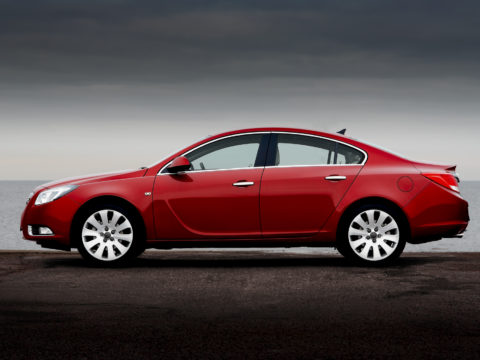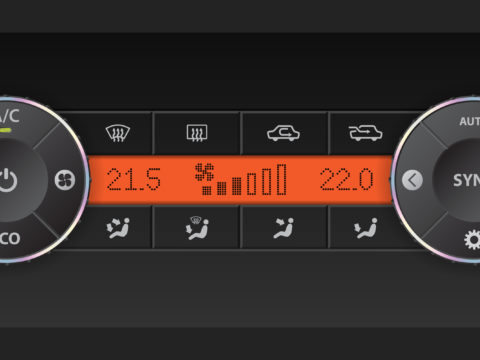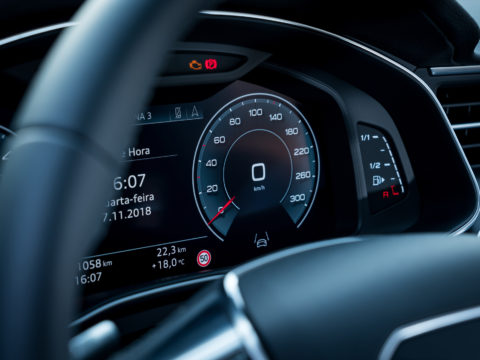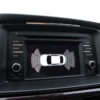No one likes their car making strange noises while they drive. It could mean an expensive visit to the mechanic or a slight tune-up at home, but it’s a hassle either way. If your car is squeaking while you’re driving, what is the issue?

Contents
What Does it Mean When Your Car Squeaks While Driving?
Generally, if your car is making any unusual noises while you’re driving, it’s not a good sign. It means that something isn’t lubricated enough or needs more oil. However, what is wrong with your car depends directly on what part of it is squeaking. Can’t tell? It might be time to take it to a trusted mechanic.
The main issue with a squeaking car depends on what part of the car is making the noise. It could be a faulty brake or suspension system, loose parts throughout your car, or a lack of lubrication in the engine. Once you find out what is causing the noise, you’ll be able to fix the problem.
If your car is squeaking while you’re driving, it could be any of these issues. However, it’s best to take it to a mechanic and find out what the issue is from a professional. Even if the squeaking temporarily goes away, it could be a sign of a deeper issue.
What Causes Squeaking While Driving?
Cars are complicated and highly functioning machines. However, so many parts mean that a squeak could be anything from a loose nut to a fault break system. Whatever it is, you want it fixed as fast as possible, and the first step to that is figuring out what is wrong.
Different sounds while driving reflect different issues with the car. Of course, because most automobile components are made of metal or rubber, lots of issues will make a grating or squeaking sound. Let’s get to the bottom of it and find out what issues could be making that noise, so you can decide how to fix it.
Faulty Brake System
Next time you’re driving your car, listen to where the sound is coming from. Does it happen whenever you hit the brakes? If this is the case, the squeaking is telling you that there is an issue with your brake system. Whether it’s the brake line or the brake pads, it’s vital to get this fixed immediately.
Brakes are essential to bringing your car to a safe stop. The brake pads provide friction and the rotors connect them to each wheel. Without that, you would crash every time you wanted to stop.
Fix Your Brakes
Generally, a squeaking sound coming from your brake pads means that the rotors aren’t making contact with the brakes properly. Take it to a mechanic for a full diagnosis. You might have to replace the brake pads, the rotors, or both, depending on the situation.
Although brake pads generally wear out at the same time, you might be allowed to only replace one. This isn’t a good idea–you should keep them at the same level of newness. The same goes for rotors.
Faulty Suspension System
If the sound is coming from your suspension system, you need to get it checked out immediately. Unfortunately, this probably means some pretty big problems for your car’s health, and the sooner you get it dealt with, the less long-term damage you will have.
The suspension could be worn out or broken if it’s squeaking. Either way, it’s going to become quite a bumpy ride (literally) if you don’t get it fixed. The suspension is crucial for the car’s performance and endurance.
Replace or Fix Your Suspension System
Take your car to a mechanic and explain the problem. With any luck, it will only be a lubrication or loose nut issue, and you’ll be able to fix it without spending a ton of money. Either way, you’ll be glad you dealt with it sooner rather than later.
Insufficient Lubrication
A common reason for squeaking noises is that some part of your car or engine isn’t lubricated enough. Like a rusty door hinge, anything metal will start to squeak if it doesn’t get enough oil. Some parts wouldn’t make a huge difference in safety, such as the car door.
However, any engine mechanism needs to be running smoothly to prevent fire and malfunction. If you can’t tell where the squeaking is coming from, you can check your oil levels and type to see if that needs to be adjusted.
Check Your Oil Levels
To check your oil levels, make sure your engine is turned off and completely cooled down. Pull out the oil dipstick and wipe it clean. Then place it back in and pull it back out–this is the accurate read of the oil levels. You can top off your car or take it for an oil change if it’s not at the optimal level.
If your levels are fine, you could have the wrong type of oil for your car. The oil that is too thin won’t lubricate the engine well enough, especially as it heats up. Ask your mechanic about this next time you go in for an oil change or checkup!
Loose Belt
The largest belt in your engine is the serpentine belt. It connects the top of your engine to the parts underneath, turning everything at the same time like clockwork. If it’s loose, however, it’s more likely to snap and do immense damage to the interior of your engine.
A loose belt will generally squeak the most when you’re accelerating. As the engine turns more and heats up, the belt moves faster and faster. If it’s loose, it will slap against the cogs and cause a squeaking noise.
Replace Your Loose Belt
If you think that your serpentine belt is loose, get it replaced as soon as possible. It’s not actively damaging your car, but it runs the risk of snapping and causing a complete breakdown. Luckily, a belt replacement is one of the least expensive repairs you can make on your car.
Loose Nuts and Ball Joints
Squeaking coming from any part of your car could mean that a joint or lug nut came loose. Luckily for you, this is one of the easiest fixes available; all you have to do is find the loose nut and tighten it.
However, finding the source of the squeak can be difficult, especially if it’s in the engine and only happens when you’re driving. It could also be a ball joint, which is harder to tighten manually and might need replacing. If you can’t find anything or the squeaking persists, go to a mechanic.
Check for Loose Nuts or Joints
Check around your whole car for loose nuts or ball joints. Open the engine (once it’s cool) and twist any nuts with your hand. If they wiggle, they’re too loose and could use some tightening. Double-check the lug nuts on your wheels; it’s easy for them to loosen on rough terrain without you noticing.
Faulty Steering Rack
If your car is squeaking when you make turns, it might be time to take a closer look at the steering rack. The steering wheel is how you control the car, and it connects to the steering rack. This part attaches to the wheels to pull the car in the right direction.
However, if a steering rack is loose or unlubricated, it will start to squeak. Whatever part of the steering mechanism isn’t working, you can try a few things on your own. If relubrication doesn’t work, you’ll have to take it to a mechanic to solve the problem.
Fill Your Power Steering Fluid
Power steering fluid keeps the entire steering system well lubricated. It needs its fluid because it turns all the time. For a simple fix, top off your steering fluid (found under the hood) until it’s at the standard levels. If this doesn’t fix the problem, it’s probably a more substantial issue with the steering rack.

What Does it Mean When Your Engine Squeaks?
Whichever of these issues it has, your engine is squeaking because something is wrong. The most common cause is under lubrication, If you are behind schedule to change your oil, make sure you keep up with that in the future. Otherwise, it could be bad brakes, suspension, or even a loose belt. Whatever it is, it shouldn’t be happening.
Is It Safe to Drive With a Squeaky Suspension?
A squeaky suspension is one of the possible causes of squeaky driving. However, you might want to keep using your car. After all, can it be that dangerous to continue driving with a squeaky suspension?
The answer is yes. The suspension protects your car from unnecessary bumps and jolts, which helps you have a smoother and safer ride. On top of this, leaving a faulty suspension unchecked for too long could lead to you paying thousands more dollars than necessary or even buying a new car.
What to Do If the Squeaking Noise Persists
If you’ve tried everything on this list and the squeaking noise won’t go away, it’s time for professional help. A mechanic will diagnose the problem and give you a practical solution for your car.
If you were sick, you wouldn’t hesitate to go to a doctor. Why not treat your car the same way? After all, it’s essential to your daily life, and a mechanic costs a lot less than a brand new car. The squeaking will be gone, and you’ll be able to drive in peace, knowing it won’t come back.














